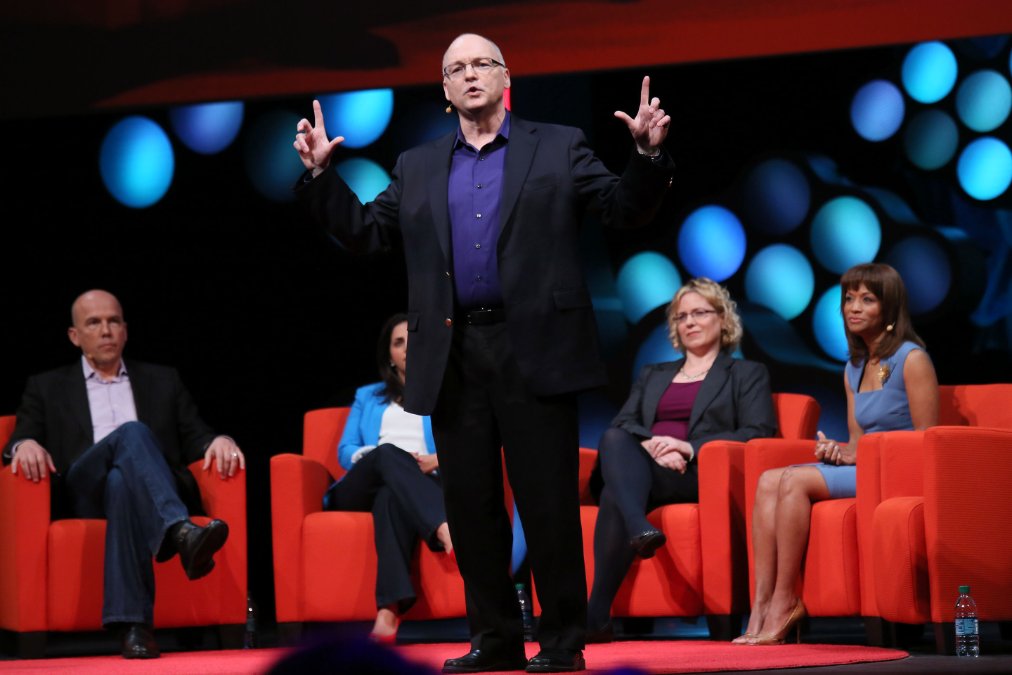“Creativity is just connecting things.” —Steve Jobs
One of the first stories I ever learned to read was called Stone Soup. It was a tale about three wily soldiers with no food or money who come to a wary village and set a large iron cauldron by the well in the town square. As the inhabitants look on, the soldiers fill the vessel with water and ceremoniously place a large stone in the pot. Intrigued, the villagers come out to examine and critique the colorless concoction. Some suggest that the broth would be improved with carrots or potatoes and such to which the tricksters agree. The meal gains momentum as the folks each willingly add some small ingredient. Soon the cauldron is bubbling with a sumptuous brew and all feast and dance in celebration. The story ends with the soldiers moving down the road to repeat the whole charade on the next unsuspecting burg.
I have never forgotten this parable about the generative power of communities engaged in small and diverse creative acts. Over the years I have been lucky enough to work with many of the top companies in the world on ways to make collaborative innovation happen. Sometimes it requires complex strategic maneuvers or the intricate coordination of customized processes and arcane measures. But at its most basic level, organizational innovation is mostly about making stone soup. That is, getting everyone, everywhere, every day to make small unique contributions that when combined create something truly great.
All learning is developmental. If you don’t believe it try speaking a foreign language or taking up an instrument and you will quickly discover that the failure cycle knows no age. We learn by seeing and then doing and finally by teaching – See One, Do One, Teach One. Of course talent matters but our gifts come in many diverse forms so it is essential that seek out those who are unlike us so that we may see beyond our own blind spots. Innovation is not produced through alignment or agreement but rather through the positive tension that comes from constructive conflict.
In this case study video we spend the day with the Detroit Symphony Orchestra creating new ways to grow their online audience. A world class ensemble, the DSO is looking to extend their audience and reach while developing new sources of revenue. A diverse team has been assembled to jumpstart the project in four simple steps:
1. Set High Quality Targets
- Identify high impact and high probability growth targets
- Create a shared vision with an appropriate level of ambition
- Select initiatives to test the strategy
2. Enlist Deep and Diverse Domain Experts
- Identify the various areas of expertise needed
- Assess organizational capability and culture
- Enlist high potential growth leaders
3. Take Multiple Shots on Goal
- Brainstorm winning ideas and transform them into solutions
- Jumpstart growth and innovation project teams
- Gain organizational buy-in for new ideas
4. Learn from experience and experiments
- Assess what worked and didn’t
- Develop simple rules of thumb
- Implement winning solutions throughout the organization
Pay special attention to the intangibles such as how the team uses its creative energy to produce momentum.
An innovation only exists for a very brief moment before it goes sour like old soup. As with a chef trying new recipes, practice precedes mastery. The more you cook the better the dish. The stock of this innovative soup is deviation and requires the encouragement of deviance. The old adage is wrong. Too many chefs don’t spoil the broth; they make the sumptuous stone soup.

Jeff DeGraff is the Dean of Innovation – an author, speaker, and advisor to Fortune 500 companies and mission-driven organizations worldwide. He’s the CEO and Founder of Innovatrium, Founder of Intellectual Edge Alliance, and Clinical Professor of Management and Organizations at the Ross School of Business at the University of Michigan. Jeff co-created the Competing Values Framework and developed the Innovation Code and Innovation Genome methodologies which provide organizations with practical tools to reconcile competing priorities and drive breakthrough performance. His mission is the democratization of innovation: making systematic innovation accessible to everyone, everywhere, every day.
